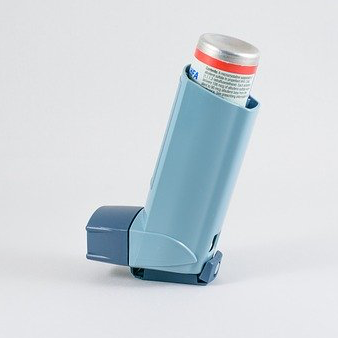Case Study Suggests Tezepelumab Efficacy for Non-Type 2 Asthma Treatment
This is the first instance in which a patient without a response to sequential bronchial thermoplasty, dupilumab, benralizumab, and mepolizumab ended up with a strong clinical response to tezepelumab.

Tezepelumab could serve as a novel therapy for individuals with uncontrolled severe non-type 2 asthma despite having bronchial thermoplasty (BT) and prior treatment with biologics, according to recent findings.1
These data resulted from a new case report which assessed an 80-year-old female with non-type 2 asthma which had progressively gotten worse and had been diagnosed 11 years prior. This research was led by Yoshiro Kai, from the department of respiratory medicine, at Minami-Nara General Medical Center, Yoshino-gun, Japan.
Kai and colleagues noted in their introduction that tezepelumab is a human IgG2 monoclonal antibody which is characterized by its inhibition of thymic stromal lymphopoietin (TSLP).2
“Tezepelumab can be effective in patients with poorly controlled moderate to severe asthma regardless of phenotype (type 2 or non-type 2),” Kai and colleagues wrote. “Herein, we present a case of non-type 2 severe asthma, which developed during tezepelumab treatment, after failed treatment with BT, benralizumab, dupilumab and mepolizumab.”
Background and Findings
The investigators looked at an 80-year-old female participant who had been labeled as a ‘never-smoker’ and given a diagnosis of bronchial asthma at the age of 69. This individual was shown not to have comorbid eosinophilic chronic rhinosinusitis and she was also shown to be sensitive to receiving aspirin.
Despite being on tiotropium bromide hydrate, high-dose inhaled corticosteroids (ICS) /long-acting β2-agonists, and on leukotriene receptor antagonists, the individual was found to be experiencing exacerbations of asthma which necessitated treatment with systemic corticosteroids which would be given 2 - 3 times in a given year.
Her total serum immunoglobulin E (IgE) level was also noted by the investigators to be in the typical IgE range, and this individual showed normal counts of peripheral blood eosinophils and fractional exhaled nitric oxide levels. After tests, the research team found that the patient had bronchial wall thickening as well as a forced expiratory volume in 1 s (FEV1) of 1580 mL (95.1%) and an 82.3% FEV1/forced vital capacity.
While treatment with bronchial thermoplasty (BT) did take place, the female patient’s asthma ended up getting more severe following a single year and 2 months. After being treated with benralizumab and dupilumab, symptoms did not improve, and this led to systemic corticosteroid implementation.
Additionally, the investigators reported that mepolizumab treatment managed not to improve the individual’s symptoms, with COVID-19 infection causing her condition to further worsen. By December 2022, the patient began using tezepelumab, and this led to improvement in cough and breath shortness.
Additionally, this along with an increase in Asthma Control Test (ACT) score from 10 to a score of 24, all of which occurred without improvement in FEV1. Following the initiation of tezepelumab 9 months prior, systemic steroids were not required.
The research team noted that eosinophils are an essential part of asthma pathogenesis, adding that mepolizumab, dupilumab, and benralizumab are considered to be useful in treating Th2-severe asthma. However, due to low eosinophil counts and FeNO levels, the team added that ineffective suppression of IL-5 and IL-13 may have occurred in this case.
Macrolides and bronchial thermoplasty serve as alternatives for treatment of non-type 2 asthma, but patients allergic to macrolides will not report such benefits. Tezepelumab showed promise in reduction of exacerbations of asthma, and this may be observed especially among those with low eosinophil counts and FeNO levels.
The investigators did acknowledge that the drug’s use among those with non-type 2 asthma requires additional research, though it was still shown to be effective for the patient. This may indicate the drug’s potential for patients with severe non-type 2 asthma resistant to other biologics and bronchial thermoplasty.
“Tezepelumab treatment might be a novel therapeutic approach in patients with uncontrolled severe non-type 2 asthma despite BT and previous biologic treatments with benralizumab, dupilumab and mepolizumab,” they wrote. “Nevertheless, further studies evaluating the efficacy and safety of tezepelumab against uncontrolled severe non-type 2 asthma should be performed.”
References
- Kai Y, Suzuki K, Kataoka R, Sato I, Tamaki S, Muro S. Efficacy of tezepelumab against uncontrolled severe non-type 2 asthma refractory to bronchial thermoplasty, benralizumab, dupilumab and mepolizumab. Respirol Case Rep. 2024;12(3):e01311. Published 2024 Feb 27. doi:10.1002/rcr2.1311.
- Kurihara M, Kabata H, Irie M, Fukunaga K. Current summary of clinical studies on anti-TSLP antibody, Tezepelumab, in asthma. Allergol Int. 2023; 72: 24–30.